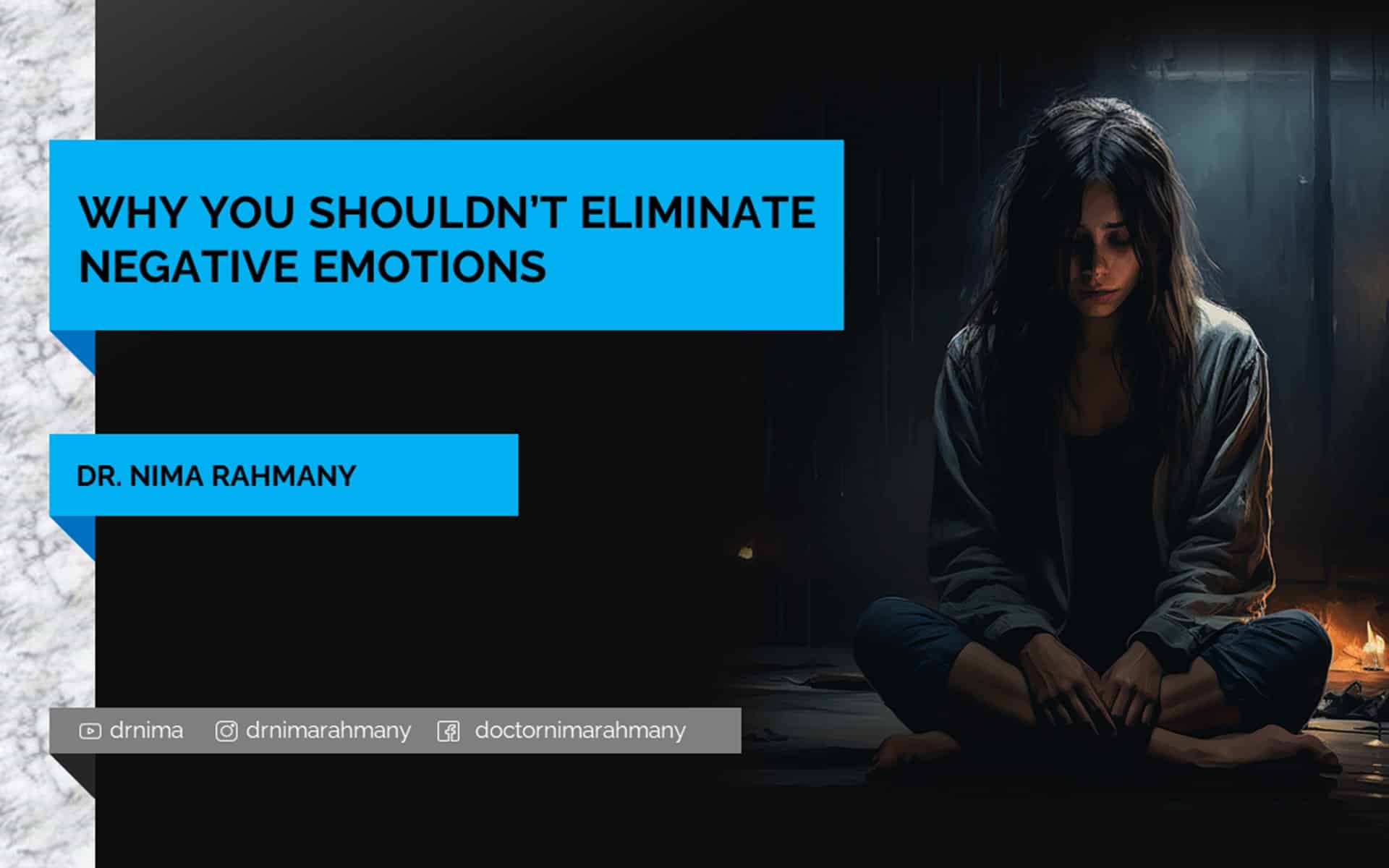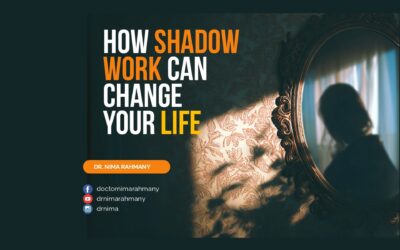“Dr. Nima, we walk on eggshells with each other.
I am so sensitive to the slightest upset that when he is in a bad mood,
I don’t know how to fix it.
I constantly feel like a failure in this relationship.
Can you help?”
I just received this email from a subscriber,
and it hit on one of the root causes of most toxic, insecure relationship patterns:
Self-invalidation.
If you grew up with well-meaning but trauma-uninformed parents,
you probably experienced a stark difference in how your emotions were met.
When you were happy or “positive,” you were met with openness,
but emotions like anger, sadness, guilt, or grief?
Not so much.
Think back:
Were you held, validated, and understood during your darker moments?
Did your parents guide you through these feelings and teach you how to co-regulate?
If you’re like most people in our cyclebreaker community,
even if you’ve done plenty of therapy and personal development,
there’s often one recurring theme:
You’ve been conditioned to push away negative emotions—
to “clear” or eliminate them, much like how your parents reacted to them.
This leads to rumination and self-doubt, an unconscious attempt to regulate the emotional alarm within you.
But labeling these emotions as “negative” causes you to defend against,
dismiss, or avoid the most tender parts of yourself.
And the more you avoid those parts,
the more your relationships begin to mirror that avoidance.
- Partners stop making the effort to understand you.
- You feel alone, even in long-term relationships.
- Your feelings are constantly dismissed.
- Partners get defensive when you try to share your experience.
- You find your reality invalidated over and over again.
The truth is, the outside world reflects what’s happening inside.
Here’s the kicker: Until you change how you relate to your own emotions,
there’s no way a relationship can feel nourishing.
True intimacy remains out of reach.
Anxiety becomes the norm.
Repair doesn’t feel like it ever really happens.
But here’s the good news: None of this is your fault.
This emotional avoidance is cultural conditioning.
We’ve been taught to pathologize “negative” emotions,
leading us to abandon our natural responses to them.
This is how sadness, grief, and fear turn into anxiety and depression.
You’re not broken—you’ve just been conditioned to believe you are.
And that conditioning serves one purpose: to sell you pills.
But there’s a better way, and it will liberate you.
This is a clip from a recent Overview Experience,
we dive into this blind spot (among others) at the heart of every relationship dysfunction.
And after uncovering it, we practice the somatic and cognitive skills that break this cycle once and for all.
When you master this, you experience a profound freedom.
Someone else’s disapproval no longer causes you to crumble.
Instead of walking on eggshells, you learn to co-regulate with your partner.
The best part-- You pass this on to your kids.
You teach them how to navigate life’s inevitable truths:
- They will learn how to grieve—but they’ll grieve well.
- They’ll get angry—but they’ll move through it because you won’t make their anger wrong.
- They’ll feel sadness and fear—but it won’t become anxiety or depression.
This is emotional literacy, a skill that can’t be taught in a therapist’s office,
but rather through practice—expanding your capacity to sit with emotions in a safe container.
The result-- Inner peace, calm, and stillness.
No more wasted energy on avoiding or negating your emotional experience.
This relationship with your own emotions is THE hidden relationship dynamic that,
when mastered, makes intimacy accessible, makes you a secure partner, and turns you into a rockstar friend, parent, and leader.
And the chill vibes you create-- They spill over to everyone around you.
Because this self-invalidation is part of your conditioning…
To heal— the real question becomes all about your WILLINGNESS
to get uncomfortable in order to get that sense of freedom.
Your wingman on the adventure,
Nima
(I stand for healed families)
if you’ve tried therapy or personal development but still feel stuck—I invite you to share your story with me.
Let me know what you’ve tried so far and what blind spots you think might be holding you back.
If you’ve been successful at work but challenged in the relationship department
and you’re ready to see those blind spots and finally move forward,
ask for my calendar link as I’m opening some spots this week for the true
seeker who’s genuine, curious, willing to hear the truth, and willing to take action.
I’d love to support you on this journey. Give me your back story and finish with
“Nima can I get some help with my blind spots? Send me your private calendar link”.
If I think I can help after reading it— and there are spaces open, I’ll send it over.
Thank you for your feedback and questions that help inform how I can serve better.




